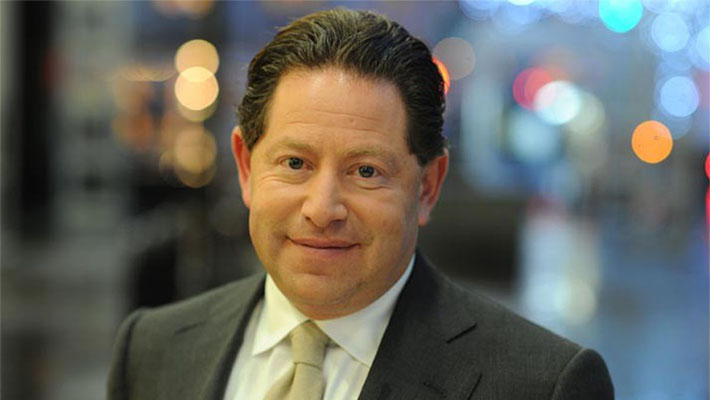
This is Niche Culture. In this column, we regularly cover anime, geek culture, and things related to video games. Please leave feedback and let us know if there’s something you want us to cover!
Activision Blizzard CEO Bobby Kotick has stated in an interview that games are not a place for his political views.
For those unaware of the irony, Blizzard Entertainment have been in hot water since their suspension of pro-Hearthstone player Blitzchung for his support of the Hong Kong protests, firing the casters, and their overall handing of the entire debacle. Even US Senators wrote to Kotick condemning the decision.
Blizzard finally released a statement, revealing they had returned Blitzchung’s confiscated prize money and reduced his suspension time. In addition, the casters firing was rescinded, instead becoming a ban. The statement also claimed that “relationships in China had no influence on our decision”
After weeks of protests online and in real life, Brack offered a statement at the start of BlizzCon 2019. “We moved too quickly in our decision-making and then, to make matters worse, we were too slow to talk with all of you,” said Brack.
“When I think about what I’m most unhappy about, there’s really two things: The first one is that we didn’t live up to the high standards that we set for ourselves. And the second is that we failed in our purpose. And for that, I am sorry, and I accept accountability.” Brack later confirmed Blitzchung and the two casters would not be unbanned.
In an interview with CNBC, interviewer Becky Quick asked Kotick how the expectations of being a leader in a company now demand business leaders to take charge on political subjects such as Hong Kong.
“What has been your experience as expectations for CEOs and for leadership, I think, have — they have really ratcheted up, I think in part because politicians aren’t doing as much. I think people are turning to business leaders and expecting them to lead on a variety of subjects, and that can take you anywhere from Hong Kong and democracy to gaming additions and beyond. How do you grow into that role? What do you do?”
Kotick replied that it was not his companies business to dictate what people can do, but to allow communities to communicate.
“Well, you start with, our mission as a company is “Bringing the World Together Through Epic Entertainment.” You know, that’s a big mission. It has some similarities to, let’s say, a Facebook. But, you know, we’re not the operator of the world’s town halls. We’re the operator of the communities that allow you to have fun through the lens of a video game. And you know, I — my responsibility is to make sure that our communities feel safe, secure, comfortable and satisfied and entertained. And so I don’t — I don’t — that doesn’t convey to me the right to have a platform for a lot of political views, I don’t think. I think my responsibility is to satisfy our audiences and our stakeholders, our employees, our shareholders. But I think there are some business people who are incredible examples of character and integrity and principle and have what you see are the great attributes of leadership, and I think that they are incredibly inspiring for me. But I think, you know, they do have the right to articulate views and visions and voices about government and policy and politics, and I love engaging with those people.”
The statement is intriguing not only because of the Blitzchung incident, but also because of another incident. Some critics have insisted Call of Duty: Modern Warfare‘s Highway of Death mission is attempting to re-write history of what occurred at the real Highway of Death. During the Persian Gulf War in February 1991, the six-lane Highway 80 between Kuwait and Iraq is where US-led coalition continued to fire on retreating-forces after a cease-fire.
The mission in Call of Duty sees you sniping over the road, in the fictional Middle Eastern country of Urkistan where Russian forces bombed those attempting to escape the area as they invaded. Despite the fictional setting and scenario, the game was discussed on Russian State TV, and critics have claimed the game was attempting to rewrite a war-crime, and demonize Russia. The game was also not sold on the Russian PlayStation store.
What do you think? Sound off in the comments below!